Can My Phone Be Tracked If Location Service Is Off?
Your smartphone includes built-in location services, which are helpful if you lose it or use an app that requires your location. Sometimes, you may want to turn off the location services for security reasons. In this case, you might wonder "Can someone track my phone if my location is off?" Yes, it is possible to track mobile phones even when location services are disabled.
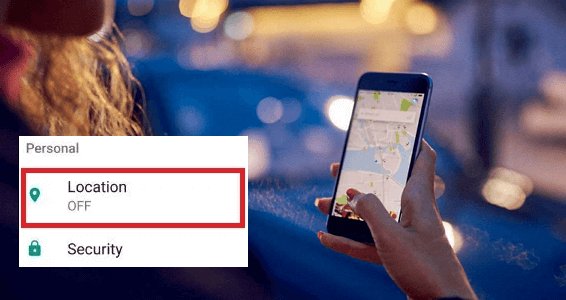
Turning off your phone's location service can help you hide your location. It is vital if you do not want third parties to know where you are or track your movements. However, a smartphone can still be tracked using other techniques that reveal its general location. Keep reading to know how.
- Part 1: How Does Location Tracking Work
- Part 2: Can Someone Track My Phone If My Location Is Off?
- Part 3: How Do I Know If Someone Is Tracking My Phone?
- Part 4: How to Block My Phone from Being Tracked
- Part 5: How to Stop the Phone Carrier from Tracking My Phone's Location
- Part 6: Bonus: Ensuring Privacy and the Safety of Your Child

- Part 7: FAQs about Tracking a Phone
Part 1. How Does Location Tracking Work
Cell phone location technology can be helpful when looking for the nearest gas station, but it can also allow others to obtain information about your whereabouts, legally or illegally.
One method of tracking your location is to use wireless signals to triangulate your position between cell towers. Another way is to use your phone's GPS radio to pinpoint your location. A third method approximates your current location by using the Wi-Fi hotspot to which you are connected.
Disabling any of these features can help prevent tracking if you suspect you are being tracked using your cell phone. Let us explain how these methods work in detail below;
GPS
A GPS tracking device is a portable unit that allows users to track and monitor its location. These devices are most commonly used as car tracking systems in vehicles.
While tracking devices and in-car navigation systems are similar, there are key differences. GPS navigation systems display drivers' locations on a digital map and provide driving instructions to get them to a specific location. GPS trackers, on the other hand, use GPS technology to track a vehicle's current location and trip history. The GPS information is then transmitted to a computer, smartphone, or tablet.
![]()
GPS trackers communicate with a network of satellites to determine their location. The tracker employs trilateration, which determines latitude, longitude, elevation, and time by comparing the positions of three or more satellites in the Global Navigation Satellite System (GNSS) network.
It is simple to learn how to use a GPS tracker. The tracker is typically powered in the vehicle by the onboard diagnostics (OBD-II) connector, a cigarette lighter, an accessory socket, or an internal battery. The data it collects is then transmitted to software, which allows the user to aggregate and analyze it.
How do GPS trackers interact with software? Some are active trackers, which means they can provide users with real-time global positioning data. This tracker can be integrated into a managed service.
Passive trackers are typically less expensive than active trackers because they store GPS data to be viewed later.
Wi-Fi Connection
Even if it is not connected to a Wi-Fi network, a smartphone with Wi-Fi enabled communicates with nearby Wi-Fi networks. Your device automatically scans nearby Wi-Fi access points and records signal strength.
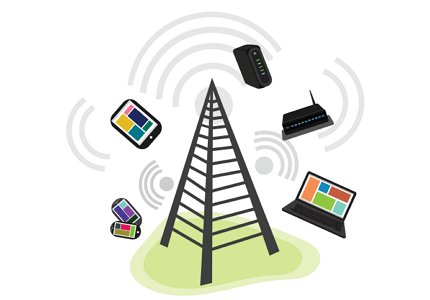
The provider frequently asks you to consent to location tracking when using public Wi-Fi; when you are in the range of one of its hot spots, that Wi-Fi provider will record your location.
To use public Wi-Fi while protecting your privacy, connect to a VPN. Your IP address and physical location are also kept private by the VPN.
Cell Towers or Cell-Site Simulators
Cell site simulators, also known as stingrays, simulate cellphone towers. They deceive your phone into pinging it, transmitting its location, and identifying data. By sharing a stronger signal than the cell towers, stingrays cause cell phones to connect to them rather than legitimate cell towers.
Stingrays are frequently used by law enforcement to locate and track potential suspects. Stingrays connect data from all phones in the vicinity of the device while attempting to connect to a specific individual.

There are over 300,000 cell towers in the United States. Signals travel back and forth to the nearest cell tower when you use your phone. Cell carriers can determine your phone's general location by measuring the time it takes for a signal to travel back and forth.
Carriers use cell tower triangulation, which combines location data from three cell towers to get a more accurate reading. This technology was created to assist 911 operators in locating callers. It finds the phone within a 300-meter radius.
Part 2. Can Someone Track My Phone If My Location Is Off?
The question is a technical one; after all, turning off location services on your phone is supposed to make it untraceable. However, this is not always the case, as your device can still be tracked in other ways, like using triangulation of signals with cellular data.
Turning off your device's built-in location service does an excellent job of concealing your location. On the other hand, trackers can use different technologies and techniques to reveal your device's location, whether or not location services are enabled.
Part 3. How Do I Know If Someone Is Tracking My Phone?
Now we know the answer to "Can someone track your phone if your location is off?" While many reasons for tracking a phone's location information are natural, such as locating a loved one, scammers and hackers may track phones to steal personal data.
Fortunately, some telltale signs can assist you in determining whether your phone is being tracked. Here are four basic ways to know your phone is being tracked below;
Additional Applications
Someone may have tampered with your phone if it has unfamiliar apps. The unknown app could be spyware.
Unprompted Action
An app may run in the background if your phone launches activities you did not initiate. Sometimes, malware requires your phone to reboot to install updates or change settings.
A phone that randomly restarts lights up, or makes noises during calls or texts may be infected with malware.
Battery Drain
When you have spyware on your phone, the program runs in the background and drains your battery. A battery that loses power faster than usual is either an old battery or spyware.
Check the health of your battery to see if it is still functional. Follow the steps to check the battery health of your iPhone. You'll see a maximum capacity score that compares your battery power to when it was brand new. An older phone with a 75 percent battery capacity could explain why your battery loses power throughout the day. However, a virus could be to blame if your battery capacity is 95 percent or higher and drains quickly.
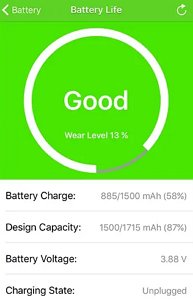
Checking the battery health on an Android device is a slightly different process. Depending on your phone manufacturer, you may need to download an app.
Overheating
Using high-processing-demanding apps can cause your mobile device to overheat. A spyware app that tracks the location of your device will use GPS, causing the phone to work harder and overheat. If your smartphone overheats while using it, it could be a sign of malware.
Part 4. How to Block My Phone from Being Tracked
There are numerous reasons why you might want to prevent your phone from being tracked. It could be for reasons of privacy or even security. Here are six suggestions:
Shut Down the Phone
Let's get started with the easiest method: turn off your phone. When your phone is off, it cannot connect to the internet, both Wi-Fi and mobile data. In this case, it cannot send data and receive GPS signals, which means it isolates any tracking over the network.
However, it's important to note that this is a temporary solution because it's not convenient to keep your phone always shut down. Also, once the phone is turned back on, tracking can resume if the necessary conditions or permissions are present.
Turn Off Location Services and GPS
Location Services primarily use GPS, Wi-Fi, cellular data, Bluetooth, and cell tower information to provide accurate location data. When it's on, your location will be shared with the authorized apps or other systems for update time or time zone.
Turning it off can help limit authorized apps and services on your phone that may use this information to determine your location.
Disable Wi-Fi in Public Places
The majority of smartphones prefer to connect to Wi-Fi networks. You may have noticed that your device switched from using your mobile data to using an available Wi-Fi network. If your Wi-Fi is always on, this happens quite frequently.
When you disable your phone's Wi-Fi connection in public places, you eliminate the risk of your device connecting to a Wi-Fi network that collects location data.
Examine App Permissions
All apps require specific permissions to function correctly. However, be wary of dubious permission requests. When an app that doesn't need your location data to work asks for location permission, it's a sign that it's doing more than it should.
Uninstall any app that asks for more permissions than you consider reasonable. If you absolutely must use the function, you can find replacements in the app store.
Use a VPN to Browse
A Virtual Private Network (VPN) allows you to browse the internet anonymously by converting a public internet connection into a private network. When you use a VPN while browsing, your internet data is encrypted, concealing your IP address and physical location. You'll be protected even if you visit a site that collects visitor location data.
Watch Out for Download Sites
Install apps only from official app stores. Other malware distribution methods exist, but the best way to keep them out is to disable app installation from third-party sources and monitor your download sites.
Install an antivirus program to protect your device from malicious apps and files, suspicious websites, and dangerous links.
Part 5. How to Stop the Phone Carrier from Tracking My Phone's Location
It's simple for iPhone users to stop the phone carrier from recording your location. Here's how it's done:
Open Setting > General > About > Diagnostics and Usage, and then tick Don't Send.
If you are an Android phone user, you may need to uninstall Caller IQ, which is a root-level application. However, you may not find it since the carriers have made the application invisible to the end user.
Bonus: Ensuring Privacy and the Safety of Your Child
We all know that privacy is not only about personal safety but also about the online safety of our loved ones, especially our children.
While we've discussed how a phone can be tracked if its location is off, it's equally important to understand how these tracking technologies can be responsibly used in the right manner.
In fact, as parents or guardians, we are always concerned about our children's whereabouts and their safety. This is where tools like parental control apps come in handy.
AirDroid Parental Control
One such tool to consider is AirDroid Parental Control, a dedicated app designed with the safety of children in mind. This app offers a real-time location tracking feature, allowing parents to find their children's location anytime.
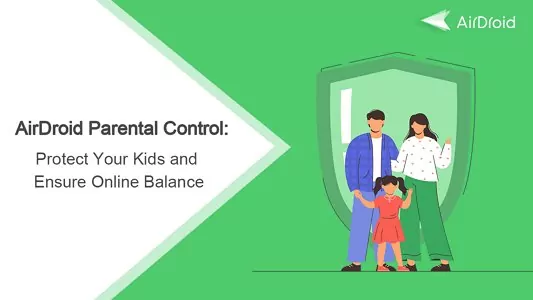
This app does more than just track a location - it helps parents monitor their kid's online activities to guide them in surfing responsibly. While there are various online monitoring tools that track online activities and locate your child, AirDroid stands out as it can check actions and social activities in the background of a phone and track your child's phone even when locations are turned off.
With AirDroid Parental Control, you can:
- Monitor your child's phone remotely to ensure friendly conversations.
- Check your child's phone in real-time using screen mirroring.
- With live GPS mapping, you can keep them safe.
- Instant alerts notify you of your child's geofence activity.
Conclusion
All in all, the answer to the question "Can someone track my phone if my location is turned off" is yes. Even if your phone's location is turned off, it can be located via IP address or cell site simulators.
Plus, we've provided some tips to help you figure out if your phone is being tracked and how to block it from being tracked. By the way, if you're monitoring for the right reasons, such as ensuring your children's safety, Airdroid Parental Control can be beneficial.
FAQs about Tracking a Phone



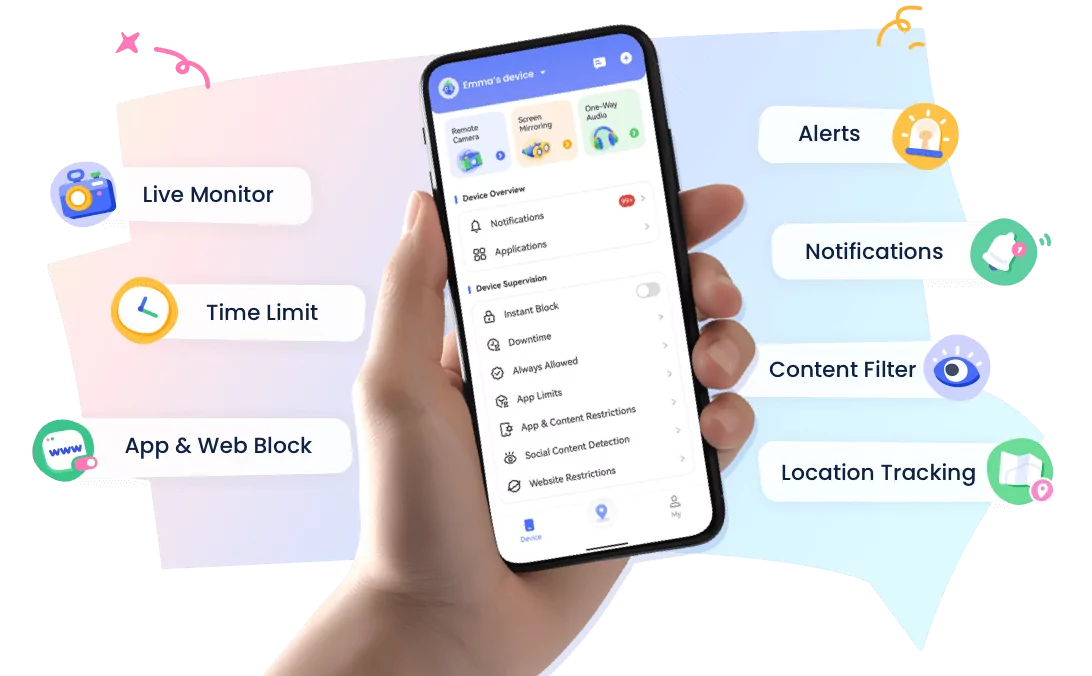









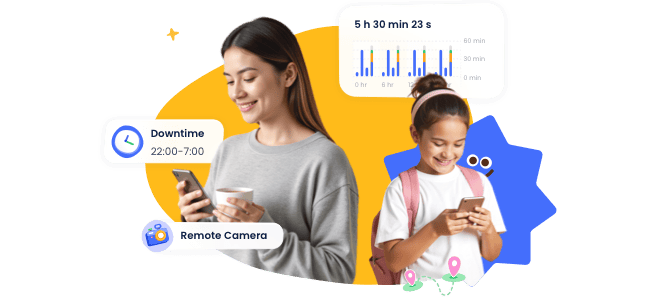
Leave a Reply.